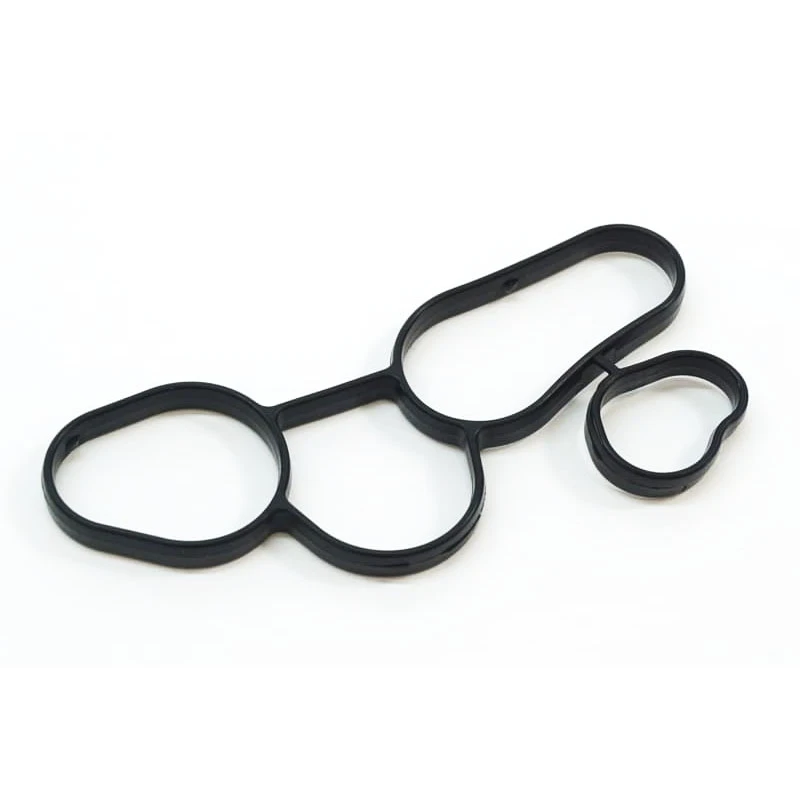radial oil seals
Understanding Radial Oil Seals Importance and Applications
Radial oil seals, often referred to as lip seals or oil seals, are crucial components used in a range of machinery and automotive applications. Their primary role is to prevent the leakage of lubricants, oils, and other fluids, which is vital for the efficient operation and longevity of machinery. This article delves into the design, function, importance, and applications of radial oil seals.
Design and Structure
Radial oil seals are generally made from elastomeric materials, such as rubber, which offer excellent sealing properties. The design typically features a circular shape with an outer diameter that fits snugly into the housing while having a lip that presses against the shaft. This lip is the primary sealing element, providing a barrier against the escape of fluids while allowing for the necessary axial and radial movement of the shaft.
The performance of a radial oil seal depends significantly on its material composition and design. Common materials include Nitrile (Buna-N), Fluoroelastomer (FKM), and Polyurethane. Each material offers different resistance parameters to temperature, chemicals, and environmental conditions, allowing for their use in various applications.
Functionality
The primary function of radial oil seals is to maintain a clean and efficient environment in rotating machinery by preventing contamination from external sources, such as dust and dirt, while also keeping lubricants sealed inside
. This dual action is essential for minimizing wear and tear on components, reducing downtime, and ensuring the effective transmission of power.Radial oil seals operate on the principle of the hydrodynamic effect. As the shaft rotates, the lip of the seal is pushed against the shaft, creating a thin film of lubricant that helps reduce friction and wear. The pressure behind the lip aids in enhancing the sealing effect, preventing leakage while accommodating shaft movement.
radial oil seals

Importance
The importance of radial oil seals in machinery cannot be overstated. Leaking lubricants can lead to increased friction, overheating, and eventual failure of mechanical components. Therefore, using high-quality radial oil seals can significantly extend the lifespan of machinery, improve performance, and reduce maintenance costs.
Furthermore, in automotive applications, these seals play a critical role in ensuring engine efficiency and performance. They help prevent oil leaks from engine components, maintaining the necessary oil levels for lubrication, ultimately contributing to better fuel efficiency and lower emissions.
Applications
Radial oil seals are utilized in a wide array of applications across various industries. In the automotive sector, they are commonly found in engines, transmissions, and differentials. In industrial applications, they are used in pumps, generators, and gearboxes. Additionally, they are employed in aerospace, agricultural machinery, and even household appliances.
The versatility of radial oil seals is evident in their ability to function effectively across varied conditions, from high temperatures to harsh chemical environments. This adaptability makes them indispensable in modern machinery.
Conclusion
In summary, radial oil seals play a pivotal role in the functionality and longevity of machinery across numerous sectors. Their ability to prevent fluid leakage while ensuring the smooth operation of moving parts is integral to maintenance, efficiency, and reliability. Investing in high-quality radial oil seals is essential for optimizing the performance of any machinery, ultimately leading to enhanced productivity and reduced operational costs.
-
Understanding the Front Main Engine Seal: Purpose, Maintenance, and Installation
News Jul.29,2025
-
Understanding O-Rings and Seal Rings: Types, Applications, and Custom Solutions
News Jul.29,2025
-
Understanding Crankshaft Oil Seals: Rear Seals, Pulley Seals, and Their Role in Engine Integrity
News Jul.29,2025
-
The Importance of Front and Rear Crankshaft Seals in Engine Performance and Oil Management
News Jul.29,2025
-
Crank Oil Seals: Functions, Types, and Cost Considerations in Engine Maintenance
News Jul.29,2025
-
A Comprehensive Guide to O-Rings and Seals: Types, Materials, and Global Applications
News Jul.29,2025
-
Mastering Diesel and Performance Engine Maintenance: A Guide to Critical Oil Gaskets
News Jul.28,2025
Products categories















